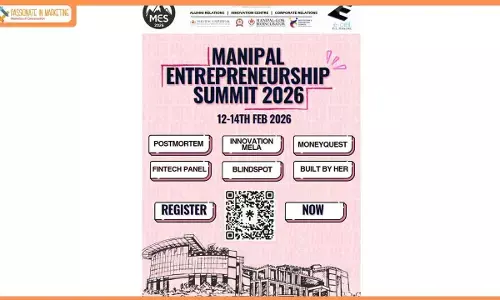Beyond the classroom: Exploring VR in education technology

The brick-and-mortar classroom invites transition from the traditional landscape to the dynamic arena of virtual reality to land in the world of advanced learning.
The brick-and-mortar classroom invites transition from the traditional landscape to the dynamic arena of virtual reality to land in the world of advanced learning. The call to action is not only a suggestive option but rather a mandate to advance the Indian educational landscape.
The giant global village with flexible architecture gradually dwells into developing teaching approaches that aid students in overcoming the challenges that would arise within the digital era. Henceforth, in this changing world, it is imperative for the education sector to adapt to technological innovation to maintain its supremacy.
A statistical figure of nearly 1.6 billion learners who encountered educational disruptions during the Covid-19 pandemic was presented by UNESCO revealing the vulnerable learning system. Acknowledging the situation, bringing in virtual reality technology to move beyond the classroom offers a plethora of limitless opportunities.
Virtual reality is predicted to bring in the storm in the global market space by capturing a market share of approximately 7 billion US dollars by 2026. A clear justification for the transformation in the education technology to enhance the learning experience.
Breaking barriers
Virtual reality brings in the convenience of time and space. The rigidity of the classroom can be dissolved via VR experiences as students are not limited by geographical spaces. Rather, they have the facility to explore the historical stories from their rooms or learn the techniques to dissect a plant cell or animal without harming the idea of sustainability or animal abuse. This portrays the potential that educational technology holds in going beyond the classroom.
Student engagement and retention
Student consciousness and enhanced interaction rate are some of the impacts that VR has on the step-by-step learning process. Old school methods are difficult to absorb and retain, especially for students starting with their educational years as an overwhelming curriculum is handed over by the board of education. The involvement of eye and hand coordination during the learning process makes the process of understanding and retention effective and efficient.
Customized learning outcomes
The digital environment enables personalized learning as the format and information can be altered as per the needs. Additionally, the style and pace of the learner can be integrated with the adaptive technology to track the progress. This learning and development approach will serve diverse interest groups ensuring the “right to education” for all.
This inclusive learning platform will bridge the gap that is prevalent for students who face accessibility issues or have unique learning styles, abilities, or special needs. A supportive and diverse educational ecosystem can be prepared to ensure inclusivity for all.
On-ground application and development
Knowledge aspects that can be directly applied to the table are much valued in comparison to any textbook or theoretical learning. Paint a picture wherein medical students can perform surgeries, engineering professionals can sketch and test prototypes, and language learners can immerse in conversations with people of choice.
VR-trained employees were more confident by 275% while applying skills as claimed by PwC in comparison with employees who were trained via traditional practices. This throws light on the fact that practical skills and confidence in students boost with the use of VR technology making them ready for the professional journey.
Succeeding generations
The journey of evolution to the revolution in education technology will be powered by virtual reality. Unimaginable ways of exploring reality can be discovered and learned in a limited time frame. There is an immense impact on the learning experience and will enhance with the development of the technology.
Four walls of the classroom are not only the mainstream medium to learn for current-grade students. One should focus on polishing the skillset to nurture curiosity and cultivate success to adapt to the dynamic world.
As curriculum builders in the tech era, it's our rationale to embrace the change. By building a core value system, we encourage an education landscape where education is immersive, engaging, and truly transformative.
(The author is Managing Director, Birla Open Minds)














